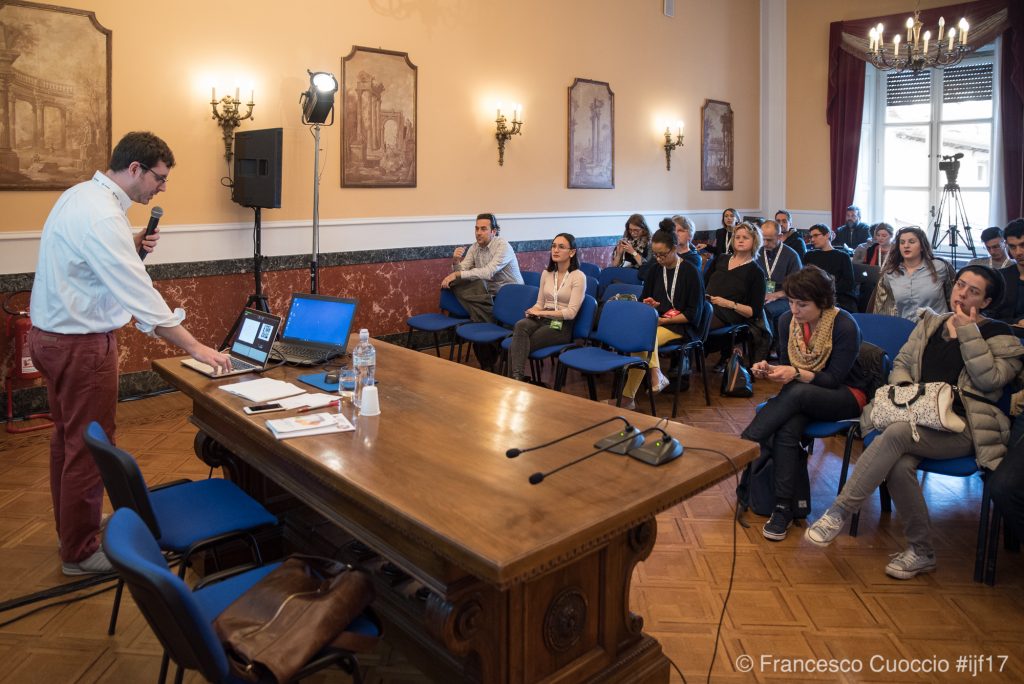The workshop “Algorithm Tips: how to investigate government algorithms” held on 7 April didn’t attract the masses, but it should have.
The problem is that algorithms are not a sexy topic. At a math camp or hackers’ congress, Nicholas Diakopoulos’ workshop might have made the hearts of the attendees beat faster, but not at a journalism festival at 9:30 on a Friday morning.
Luckily, the Assistant Professor at the University of Maryland knew how to discuss the subject with the audience and opened his workshop with an analogy concerning a topic most people love: food. “Algorithms are like a recipe,” he said: you need the ingredients, and then you follow a series of steps to complete a dish.
Just like food, algorithms are part of everyday life. We might not see them, but they are there. What we see on our Facebook timeline, how long we need to wait for an Uber car and what Google suggests as an autocompletion for our search term – this is all determined by an algorithm, by a recipe for data.
This is where things get important. Unlike food, algorithms have the potential to amplify structural discrimination or to produce errors that deny public services to individuals.
Watch Diakopoulos explain why algorithms can be discriminatory or unfair and why journalists should investigate government algorithms. You are an absolute beginner to algorithms? No problem at all. He also had some tips on how to get you started.
